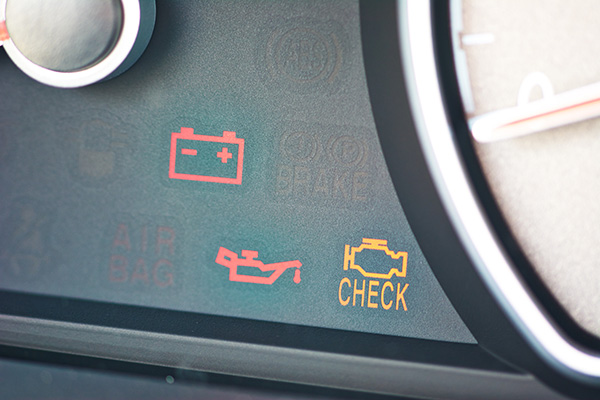
Seeing the battery warning light illuminate on your dashboard can cause concern. This warning light signals that something is wrong with your car's electrical system, but what exactly does it mean? Is the battery itself failing, or is it the alternator? Understanding the difference and knowing what steps to take can save you time, money, and stress. Let's explore the possible causes and solutions for this common car problem.
The Battery Warning Light
The battery warning light is part of your car's onboard diagnostics system. When this light comes on, it indicates that the car's charging system isn't functioning properly. This doesn't necessarily mean the battery is at fault. The issue could lie with the alternator, the battery, or other components within the charging system. Ignoring this warning can lead to a breakdown, so it's important to address it promptly.
Is It the Battery?
A failing battery is a common culprit when the warning light comes on. Car batteries typically last between three to five years, depending on usage and conditions. If your battery is old or has been exposed to extreme temperatures, it may no longer hold a charge effectively. Signs of a failing battery include dim headlights, slow engine crank, and frequent need for jump-starts. If you suspect the battery, a simple test with a multimeter can confirm if it's providing the necessary voltage.
Could It Be the Alternator?
The alternator is responsible for keeping the battery charged and powering the electrical systems while the engine runs. When the alternator fails, the battery can't recharge, leading to a depleted battery. Symptoms of a failing alternator include:
- Flickering dashboard lights.
- Unusual noises from the engine bay.
- Electrical issues like malfunctioning power windows.
Other Potential Issues
While the battery and alternator are the primary suspects, other components could trigger the battery warning light. Loose or corroded battery cables can prevent the proper flow of electricity. A faulty voltage regulator, which controls the output of the alternator, can also cause problems. Even a slipping or broken serpentine belt, which drives the alternator, can lead to a charging system failure. Ensuring all these components are in good working order is crucial for a healthy electrical system.
Diagnosing the Problem
To accurately diagnose the issue, start by checking the battery. Use a multimeter to measure the voltage. A fully charged battery should read around 12.6 volts with the engine off and between 13.7 to 14.7 volts with the engine running. If the battery voltage is low, try jump-starting the car. If it starts but the warning light remains on, the alternator is likely the problem. It is always a good idea to take your vehicle to a professional who can conduct a comprehensive diagnostic test to identify the exact issue.
Taking Action
Taking prompt action is essential once you've identified whether the issue lies with the battery, alternator, or another component. If the battery is the issue, replace it with a new one. Ensure you choose the right type and size for your vehicle. If the alternator is failing, replacing it can restore the charging system's functionality. For other issues like loose cables or a faulty voltage regulator, a qualified technician can do repairs or replacements relatively quickly.
Experiencing electrical issues with your vehicle? Schedule an appointment with Paul's Automotive for a thorough diagnostic and repair.